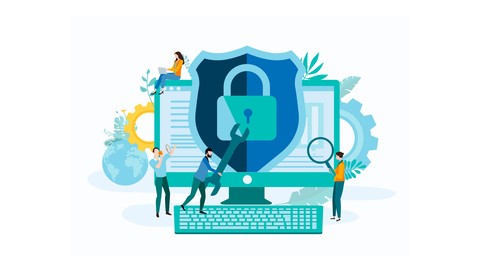Before technology was so widely prevalent, getting a degree required attending. Online Classes and sitting for exams. This was a problem for working professionals or those with other obligations during the day. This meant that rescheduling events for classes posed a huge problem. However, with the technology we have now, it is easier to obtain education and degrees at our convenience, and from the comfort of our own homes.

Important Announcement – EasyShiksha has now started Online Internship Program “Ab India Sikhega Ghar Se”

But online classes are still a novel thing. We, as a generation, are attuned to sitting in the classes and listening to lecturers teach us the subjects. Staying at home meant you don’t have classes that day. We are tuned to come out of the sitting-in-a-class mode when at home. The only thing that we do is focus on homework. However, with online education, you now need to study and do the homework from our homes only.
However, if you develop the skills to learn online effectively, these classes can be a wonderful alternative to traditional classroom learning. So here are some tips to ensure you get the most value out of your online classes
Treat Them as Regular Classes:
This is an important tip because it is easy to get used to the flexibility that online classes provide. Most classes allow you to reschedule if you can’t make it to a session. This creates a lax when it comes to learning. Over time, this lax seeps into learning as well because you can always reschedule it.
Top Software Engineering Courses
For that reason, it is important to remember that online education is not different from your traditional classroom education. When you subscribed to a course, you’ve done so because it ties in well with your schedule. Rescheduling those classes can create unnecessary conflicts. You should develop the discipline to sit down and study. One way to enforce this is to remember that you’re paying for these courses as well, just as you would for a traditional classroom-learning course.
Set Expectations:
Companies are increasingly considering online certificates are equivalent to physical, in-person certificates. Contrary to popular opinion, online classes are not inferior substitutes. Most courses have strict curricula that aim to consolidate an entire year’s worth of syllabus in the college into half that time online. Besides, in classrooms, you’ll have professors reminding you to submit assignments or follow up with presentations or quizzes.
In online classes, quizzes are done through separate links or web pages. The only reminders you’ll have are the confirmation emails you’ll receive. You must hold yourself responsible, or you will fall behind. If you have trouble holding yourself accountable, you can always ask a friend or a classmate for help.
Time Management:
Across every advice blog, ever self-help book, and every course-specific ‘useful suggestions,’ you’ll come across this tip. The part of staying organized that’s so important that it deserves its own tip is time management. One of the major appeals for online courses is that it is flexible. However, it doesn’t mean you don’t have to study. With all your activities, it is easy to postpone studying for whatever reason until it’s too late to submit a good-quality assignment or to get a good score in the quiz. Time management is important because the outcome of this course depends on the efforts you’ve put in.
There are several ways to improve these skills. At the start of the semester, mark the important dates for assignments or exams. Plan how long it’ll take you to get to a stage where you can perform well in those tests. Don’t forget that there will be several events or other unforeseen circumstances that might hamper your schedule. You shouldn’t make your schedule too rigid to stick to. It also helps to create weekly assignments and timelines that help you quantify the work you’ve done for the course. And over time, if you check in periodically, you can understand whether the efforts you’re dedicating are enough to complete the course successfully. As always, the most important thing here is to allot some time every day or once in two days to sit down and study.
Study Space and Organization:
When you’re working from home, you have a dedicated space that you use for work. For online courses too, this can help a lot. This workspace can be your table, a booth, a co-working space, a library, or your favorite café. It is important to set that desk where distractions are minimum, and you can focus on your education. Take your laptop, ensure you have a high-speed internet connection, and all the required types of software are installed.
The important thing here is to remember that your space must be something you can frequent throughout the study period. It should be an environment you can work in. Having a dedicated workspace like that can help you stay organized. It helps set clear timelines, stay ahead of your workload, revisit your goals, and take stock of the work you need to get done.
Participation and Networking:
To eliminate any lax that might seep into your education, you need to try to treat this just as you would any normal classroom environment. It is easy to think that you’re alone in preparing through the online classes. This couldn’t be further from the truth. Online classes are structured so that students and professors can have the maximum interaction possible in the restricted environment. You should take advantage of that.
Empower your team. Lead the industry
Get a subscription to a library of online courses and digital learning tools for your organization with EasyShiksha
Request NowParticipate in forums, engage in discussions, ask questions about your project long before it is due, comment on a fellow student’s paper on the discussion board, check-in as often as possible with the other students. Your peers are a valuable resource in studying for the course. You need to leverage that network to get quality feedback, create study groups, or exchange information that you couldn’t have gotten otherwise. Introduce yourself and engage in online discussions to better interact with your peers and professors
Conclusion:
Getting used to online classes isn’t easy. People usually do this for two reasons – they need for career growth, or they’re interested in the subject. Either way, it is a throw away from the usual setting both those types are used to. Over time, it is easy to blow them off because the kind of investment isn’t the same as regular classes. However, online education is extremely useful in achieving your goals. Besides, you can always supplement it with other relevant activities like online jobs for college students. Focus, follow advice and have a fruitful experience.
ALSO READ: online-education-a-great-saviour-for-higher-education-during
Get Course: Introduction-to-Power-BI





































































